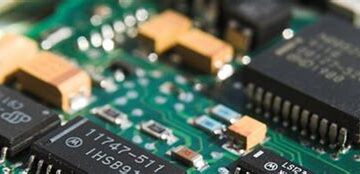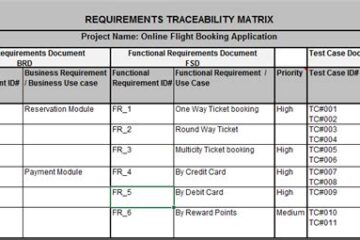Introduction to PCB, FPGA, and MCU Technologies
Printed Circuit Boards (PCBs), Field Programmable Gate Arrays (FPGAs), and Microcontroller Units (MCUs) are essential components in modern electronics design. These technologies have revolutionized the way we create and program electronic devices, enabling faster prototyping, more efficient production, and increased functionality. In this article, we will explore the latest news and developments in PCB, FPGA, and MCU technologies from Altium, a leading provider of Electronic design automation software.
What is a PCB?
A PCB is a flat board made of insulating material, such as fiberglass or composite epoxy, with conductive copper tracks printed on its surface. These tracks connect various electronic components, such as resistors, capacitors, and integrated circuits (ICs), to create a complete electronic circuit. PCBs are used in virtually all electronic devices, from smartphones and computers to medical equipment and aerospace systems.
What is an FPGA?
An FPGA is an integrated circuit that can be programmed and reprogrammed after manufacturing. Unlike application-specific integrated circuits (ASICs), which are designed for a specific purpose and cannot be modified, FPGAs offer flexibility and adaptability. They consist of an array of programmable logic blocks, memory, and input/output (I/O) blocks that can be configured to perform various functions, such as signal processing, data encryption, and high-speed communication.
What is an MCU?
An MCU is a small computer on a single integrated circuit, containing a processor, memory, and programmable input/output peripherals. MCUs are designed to perform specific tasks within an embedded system, such as controlling a robot, managing a sensor network, or processing data from a wearable device. They are known for their low power consumption, small size, and cost-effectiveness, making them ideal for a wide range of applications.
Altium’s Latest PCB Design Tools and Features
Altium, a leading provider of electronic design automation software, has recently released several new tools and features to enhance PCB-Design/”>PCB design efficiency and accuracy. These updates aim to streamline the design process, improve collaboration among team members, and ensure high-quality manufacturing output.
Altium Designer 21.0.9
Altium Designer 21.0.9 is the latest version of Altium’s flagship PCB design software. This release introduces several new features and improvements, including:
- Enhanced 3D Modeling: The updated 3D modeling engine allows designers to create more realistic and accurate 3D representations of their PCBs, helping to identify potential issues early in the design process.
- Improved Design Rule Checking (DRC): The DRC engine has been optimized to provide faster and more accurate results, ensuring that designs meet manufacturing requirements and industry standards.
- Streamlined User Interface: The user interface has been redesigned to provide a more intuitive and efficient workflow, with new shortcuts and customizable panels to suit individual preferences.
Altium 365
Altium 365 is a cloud-based platform that enables real-time collaboration and version control for PCB design teams. With Altium 365, designers can:
- Share and manage design files securely in the cloud
- Collaborate with team members in real-time, regardless of location
- Access design files from anywhere, using any device with an internet connection
- Integrate with other tools and services, such as Slack and Jira, for seamless project management
| Feature | Benefit |
|---|---|
| Cloud-based storage | Secure and accessible design files from anywhere |
| Real-time collaboration | Efficient teamwork and faster design iterations |
| Cross-platform access | Work on designs using any device with an internet connection |
| Third-party integrations | Seamless project management and communication |
FPGA Development with Altium
Altium offers a range of tools and resources for FPGA development, enabling designers to create high-performance, flexible, and power-efficient systems. Some of the key features and benefits of Altium’s FPGA development solutions include:
Altium Designer FPGA+ Edition
Altium Designer FPGA+ Edition is an all-in-one solution for FPGA design, combining PCB Layout, schematic capture, and FPGA design tools in a single platform. This integrated approach allows designers to:
- Create FPGA designs using industry-standard hardware description languages (HDLs), such as VHDL and Verilog
- Simulate and debug FPGA designs using built-in tools and third-party simulators
- Generate bitstreams for programming FPGAs directly from Altium Designer
- Integrate FPGA designs with PCB layouts seamlessly, ensuring optimal system performance and reliability
Altium Nexus FPGA
Altium Nexus FPGA is a high-level synthesis (HLS) tool that enables designers to create FPGA designs using C, C++, or SystemC. By utilizing a higher level of abstraction, Altium Nexus FPGA allows designers to:
- Accelerate FPGA development by focusing on algorithmic design rather than low-level hardware details
- Optimize designs for performance, area, and power consumption using advanced synthesis techniques
- Verify designs using built-in simulation and debugging tools
- Generate synthesizable HDL code for implementation on various FPGA platforms

MCU Development with Altium
Altium provides a comprehensive set of tools and resources for MCU development, catering to the needs of embedded systems designers. Some of the key features and benefits of Altium’s MCU development solutions include:
Altium Designer MCU+ Edition
Altium Designer MCU+ Edition is an integrated development environment (IDE) for MCU-based embedded systems design. This all-in-one solution allows designers to:
- Create schematic diagrams and PCB layouts for MCU-based systems
- Write, debug, and compile firmware using a built-in code editor and debugger
- Program and flash MCUs directly from Altium Designer
- Access a wide range of MCU libraries and reference designs to accelerate development
TASKING C Compiler for ARM Cortex-M
TASKING C Compiler for ARM Cortex-M is a high-performance compiler designed specifically for ARM Cortex-M based MCUs. This compiler offers:
- Highly optimized code generation for maximum performance and minimal memory usage
- Extensive support for ARM Cortex-M intrinsics and extensions
- Seamless integration with Altium Designer MCU+ Edition
- Compliance with MISRA C and other industry standards for safety-critical applications
FAQs
-
Q: What are the main differences between PCBs, FPGAs, and MCUs?
A: PCBs are the physical boards that hold and connect electronic components, while FPGAs and MCUs are types of integrated circuits. FPGAs are programmable logic devices that can be reconfigured after manufacturing, whereas MCUs are small, single-chip computers designed for specific tasks within an embedded system. -
Q: Can Altium Designer be used for both PCB and FPGA design?
A: Yes, Altium Designer offers specialized editions for PCB design (Altium Designer) and FPGA development (Altium Designer FPGA+ Edition). These editions provide integrated tools and features tailored to each design domain. -
Q: How does Altium 365 help with PCB design collaboration?
A: Altium 365 is a cloud-based platform that enables real-time collaboration and version control for PCB design teams. It allows designers to share and manage design files securely in the cloud, collaborate with team members in real-time, and access files from anywhere using any device with an internet connection. -
Q: What are the benefits of using Altium Nexus FPGA for FPGA development?
A: Altium Nexus FPGA is a high-level synthesis (HLS) tool that allows designers to create FPGA designs using C, C++, or SystemC. This higher level of abstraction accelerates FPGA development by focusing on algorithmic design rather than low-level hardware details, and enables design optimization for performance, area, and power consumption. -
Q: How does Altium support MCU-based embedded systems design?
A: Altium offers the Altium Designer MCU+ Edition, an integrated development environment (IDE) for MCU-based embedded systems design. This all-in-one solution allows designers to create schematics, PCB layouts, write and debug firmware, and program MCUs directly from Altium Designer. Additionally, Altium provides the TASKING C Compiler for ARM Cortex-M, a high-performance compiler for efficient and standards-compliant code generation.
Conclusion
Altium remains at the forefront of PCB, FPGA, and MCU technologies, providing designers with cutting-edge tools and resources to create innovative, high-quality electronic products. With its latest software updates, such as Altium Designer 21.0.9 and Altium 365, the company continues to streamline the design process, enhance collaboration, and ensure manufacturing excellence.
Moreover, Altium’s specialized solutions for FPGA and MCU development, including Altium Designer FPGA+ Edition, Altium Nexus FPGA, and Altium Designer MCU+ Edition, empower designers to create flexible, high-performance, and power-efficient systems that cater to the ever-evolving demands of the electronics industry.
As technology continues to advance, Altium remains committed to providing its customers with the most advanced and reliable tools for PCB, FPGA, and MCU design. By staying up-to-date with the latest news and developments from Altium, designers can ensure they have the knowledge and resources needed to create the next generation of electronic devices.



0 Comments